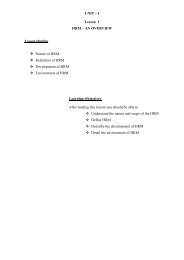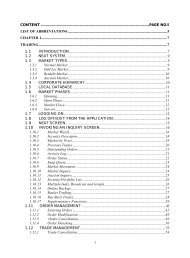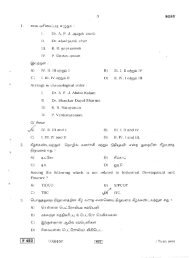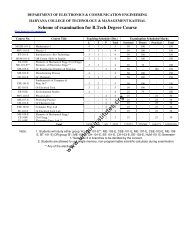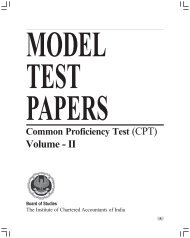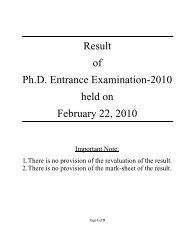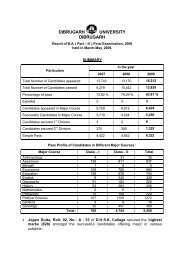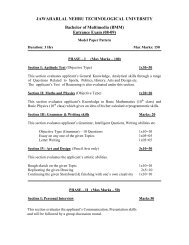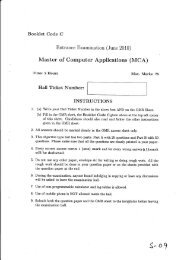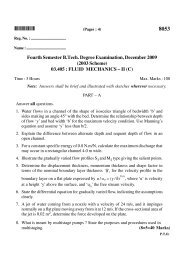Document file:///D|/Export1/www.netlibrary.com/nlreader/nlreader.dll ...
Document file:///D|/Export1/www.netlibrary.com/nlreader/nlreader.dll ...
Document file:///D|/Export1/www.netlibrary.com/nlreader/nlreader.dll ...
You also want an ePaper? Increase the reach of your titles
YUMPU automatically turns print PDFs into web optimized ePapers that Google loves.
<strong>Document</strong><br />
Page 69<br />
The objective of the most basic physics is a <strong>com</strong>plete description of what happens. In principle and<br />
apparently in practice, quantum mechanics gives a <strong>com</strong>plete account of what goes on inside, say, a<br />
hydrogen atom. But most things we want to analyze, even in physical science, cannot be dealt with at<br />
that level of <strong>com</strong>pleteness. The only exact model of the global weather system is that system itself. Any<br />
smaller-scale model of that system is therefore to some degree a falsification: it leaves out many aspects<br />
of reality.<br />
How, then, does the meteorological researcher decide what to put into his model? And how does he<br />
decide whether his model is a good one? The answer to the first question is that the choice of model<br />
represents a mixture of judgment and <strong>com</strong>promise. The model must be something you know how to<br />
make that is, you are constrained by your modeling techniques. And the model must be something you<br />
can construct given your resources time, money, and patience are not unlimited. There may be a wide<br />
variety of models possible given those constraints; which one or ones you choose actually to build<br />
depends on educated guessing.<br />
And how do you know that the model is good? It will never be right in the way that quantum<br />
electrodynamics is right. At a certain point you may be good enough at predicting that your results can<br />
be put to repeated practical use, like the giant weather-forecasting models that run on today's<br />
super<strong>com</strong>puters; in that case predictive success can be measured in terms of dollars and cents, and the<br />
improvement of models be<strong>com</strong>es a quantifiable matter. In the early stages of a <strong>com</strong>plex science,<br />
however, the criterion for a good model is more subjective: it is a good model if it<br />
<strong>file</strong>:///<strong>D|</strong>/Export2/<strong>www</strong>.<strong>netlibrary</strong>.<strong>com</strong>/<strong>nlreader</strong>/<strong>nlreader</strong>.<strong>dll</strong>@bookid=409&<strong>file</strong>name=page_69.html [4/18/2007 10:30:29 AM]



